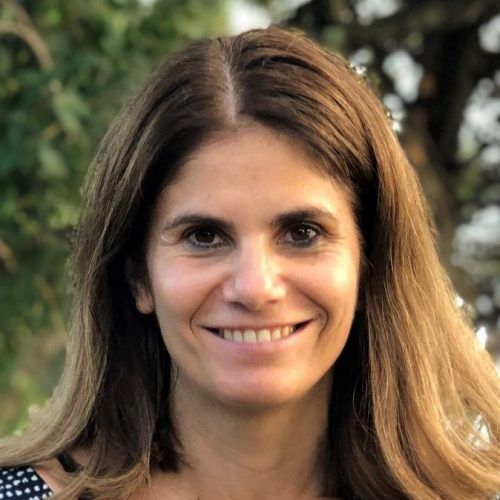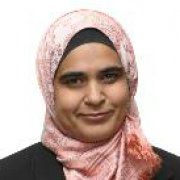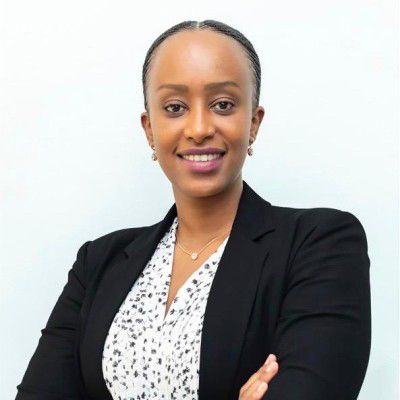
Summary
Coming on the heels of the UN’s COP26 climate conference in Glasgow, the latest ‘Talking Africa-Europe’ debate highlighted the urgency of mobilising green financing in Africa, with a focus on linking public and private funding and getting money to high-impact grassroots projects.
“If we want an economy that’s fit for purpose, an economy that’s really in the service of life, all life, and one that puts people and the environment first, we have to put money where it matters,”(20.20)Najma Mohamed, Member of the Africa-Europe Foundation Women Leaders Network and Policy Director for the Green Economy Coalition, told Thursday’s broadcast discussion.
The monthly debates bring in policymakers, business leaders and civil society figures under the auspices of the Africa-Europe Foundation, The AEF was founded by Friends of Europe and the Mo Ibrahim Foundation, in partnership with the African Climate Foundation and the ONE Campaign. It brings together stakeholders from civil society, business, policymaking and the youth sector across Africa and Europe to facilitate dialogue, catalyse partnerships and unlock new opportunities that can transform Africa-Europe relations into action.
Rich countries in Glasgow committed to increased efforts to meet their missed $100bn-per-year target for climate support to the developing world. However, speakers said shortfalls in the investment needed to build resilience and help Africa fight climate change mean it is essential to expand the private-sector’s role in green financing.
“There is a huge investment gap. What is also very clear, is that this gap cannot be bridged with available resources from the public sector only” said Magdalena Kouneva,”(07.40), Member of the Africa-Europe Foundation Strategy Group on Energy and an Independent Expert working on innovative climate and green finance instruments.
“There is a move away from grants only, towards using public finance and grants more strategically to crowd-in the amounts of capital needed to bridge the investment gap, both for mitigation finance, and for adaptation and resilience,” Kouneva added (8.36).
Speakers stressed that private finance for climate change in Africa should not be made available under regular commercial terms but, instead, needs to take account of local conditions by offering longer-term, low-interest loans.
Public finance should be used to leverage and de-risk private investments. Calling into the debate from Nairobi, Stephen Karekezi, Director at the African Energy Policy Research Network (AFREPREN) gave an example of how that worked with the development of geo-thermal energy in East Africa, where public investment in the high-risk drilling phase opened the way for private spending.
The need to clear hurdles keeping small businesses and local operators from access to green finance was one of the key issues raised during the debate.
“The economy we need is not going to emerge without a radical reform of the existing financial system,” Mohamed said from her base in South Africa(23.08). “Financial inclusion is core to this agenda, so we need to … work hard to remove the barriers that exclude local actors from accessing green finance.”
Moderator Dharmendra Kanani, Friends of Europe’s Chief Spokesperson and Director for Asia, Digital, and Peace, Security and Defence, suggested the European Union should set up a ‘green finance portal’ to facilitate access to funding for African projects.
“To symbolise a new EU-Africa relationship, having a portal … a top-end access point for all types of funding, and create bridges, opportunities, seems to be a neat and simple solution,” he said (56.27).
Rwanda’s National Fund for Environment (FONERWA) was set up in 2012 after a study found climate change was knocking 1% off gross domestic product (GDP) every year. The fund’s CEO Teddy Mugabo outlined how it works as a financing vehicle to support implementation of the country’s green-growth and climate-resilience strategy, while playing a coordinating role in mainstreaming climate action across all sectors.
As a domestic institution working closely with local communities, FONERWA is able to ensure funding meets the specific needs of the most vulnerable, Mugabo said.
“This is something other African countries can think about. Having the fund is a home-grown solution,” she explained (36.36). “It’s very timely that the African continent and African countries come up with their own solutions because we know what our problems are … The fact that it is a home-grown solution has made it work.”
About
Launched this September, the latest series of “Talking Africa-Europe” broadcasts live on a monthly basis with a strategic focus on the centrality of local experience, shifting narratives and looking to cities and city leadership for a strengthened Africa-Europe partnership.
The 2021 ‘Talking Africa-Europe’ dialogues will bring together a host of diverse voices from city mayors, youth representatives, EU and AU Commissioners, as well as civil society and business leaders to open up and deepen the space for discussion on the future of this crucial relationship
“Talking Africa-Europe” builds directly on the pilot series run in 2020, widely acclaimed for its community-building, dynamic format and capacity for facilitating “a different type of conversation” involving international policy-makers, the private sector, civil society networks and young leaders from across the neighbouring continents.
Related content
Past Event Recordings:
- AEF at COP26: Target 2030 – Reinforcing the Africa-Europe Energy Partnership
- Report Launch: Pandemic preparedness and the future of healthcare
- Launch of the Talking Africa-Europe Series 2021 — Localising the Africa-Europe Partnership
- Talking Africa-Europe: Creating a mutually beneficial partnership for Africa-Europe: Building a greener and fairer future
Our events include photos, audio and video recording that we might use for promotional purposes. By registering, you give your permission to use your image. Should you have any questions, please contact us.
PHOTO CREDIT: BigStock
Schedule
Mobilising capital for sustainable investment is vital to bounce back from the shock of COVID-19 and deliver an economic reboot that is faster, cleaner, fairer and healthier. Public and blended finance, including the $100-billion promise of climate finance made at the United Nations Climate Summit in Copenhagen in 2009, have an instrumental role to play in addressing the post-pandemic economic recovery. However, Africa and Europe need to mobilise more investments at a country and regional level to make their economies more resilient and encourage recovery from the pandemic.
The two continents need to work together and make sure that the public and private sector contribute to creating decent jobs whilst investing sustainably and understanding that for Africa, investment needs to be seen in a ‘transitional’ timeframe, putting its full emphasis on achieving the SDGs and the 2063 Agenda. For the EU, Green finance represents a key element of its strategy with Africa, as it recently announced that it will develop a comprehensive strategy to help scale-up sustainable finance in low and middle-income countries.
Questions include:
- In the lead-up to the Africa-Europe summit and post-COP 26, what progress has been made to ensure the EU ramps up its efforts on climate and sustainable finance?
- How can the international finance community set the terms of reference for what should be considered as a sustainable investment? How can we ensure that Africa is not affected by the EU green taxonomy?
- Within the framework of the Africa-Europe partnership, what mechanisms for sustainable investments should be put in place to build stronger value chains for decent jobs?
Speakers
Magdalena Kouneva
Member of the Africa Europe Foundation Strategy Group on Energy and Independent Expert Working on Innovative Climate and Green Finance Instruments
Najma Mohamed
Member of the Africa Europe Foundation Women Leaders Network and Policy Director for the Green Economy Coalition
Teddy Mugabo
CEO of Rwanda's National Fund for Environment (FONERWA)
Speakers

Member of the Africa Europe Foundation Strategy Group on Energy and Independent Expert Working on Innovative Climate and Green Finance Instruments
With over 15 years of relevant professional experience, Magdalena Kouneva specialises in developing financial instruments and building green capacities. For the last ten years, Kouneva was the UN Development Programme (UNDP) advisor for development finance in Rwanda, Malawi, and Papua New Guinea. More recently, Kouneva has focused her efforts on supporting the European Commission’s European Fund for Sustainable Development. She has helped introduce a new generation of EU guarantees for private sector operations in Africa and EU-neighbouring countries.

Member of the Africa Europe Foundation Women Leaders Network and Policy Director for the Green Economy Coalition

CEO of Rwanda's National Fund for Environment (FONERWA)
Partners

Continue
the debate on
- Debating Europe

